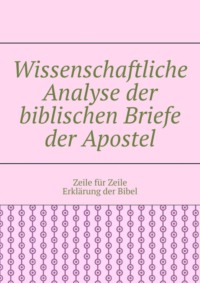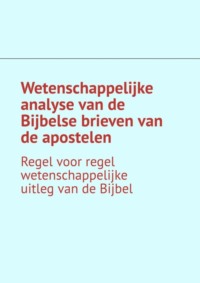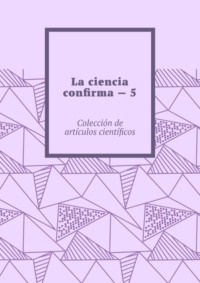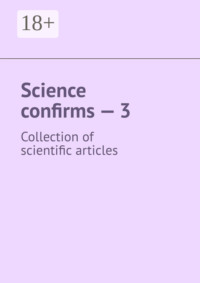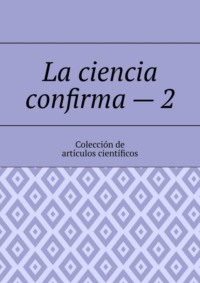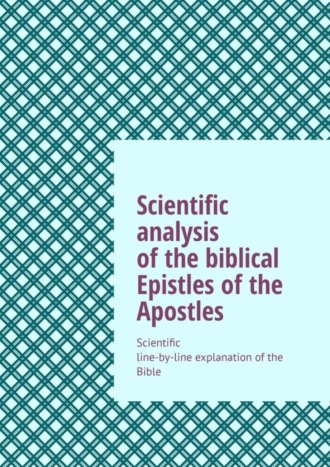
Полная версия
Scientific analysis of the biblical Epistles of the Apostles. Scientific line-by-line explanation of the Bible
25 Circumcision is useful if you keep the law; but if you are a transgressor of the law, then your circumcision has become uncircumcision. (Reasoning about the «benefits» and «non-benefits» of circumcision).
26 Now, if an uncircumcised person observes the ordinances of the law, will not his uncircumcision be imputed to him as circumcision? (Reasoning about the «benefits» and «non-benefits» of circumcision).
27 And he who is uncircumcised by nature, who fulfills the law, will he not condemn you, a transgressor of the law in the Scriptures and circumcision? (Reasoning about the «benefits» and «non-benefits» of circumcision).
28 For he is not a Jew who is outwardly, nor is circumcision, which is outwardly in the flesh; (Reasoning about the «benefits» and «non-benefits» of circumcision).
29 but [that] A Jew who is inwardly [such], and [that] circumcision, [which] is in the heart, according to the spirit, [and] not according to the letter: his praise is not from people, but from God. (The need to cancel the fulfillment of the Mosaic Law for the emerging pagan Christians. As is known from Acts, this topic was the main source of controversy in the early Church and was discussed at the Apostolic Council in Jerusalem (Acts, Chapter 15). In the epistle to the Romans, the Apostle Paul gives detailed arguments in defense of the council’s decision on the non-necessity of observing the law for baptized pagans and discusses justification by faith, sin and the law).
Chapter 3
1 So what is the advantage [of being] A Jew, or what is the use of circumcision? (Jews have always observed the rite of circumcision with special care. By the time of the New Testament, circumcision became the main external difference between a Jew and a non-Jew, a kind of symbol of Judaism).
2 A great advantage in all respects, and above all, that the word of God is entrusted to them. (Especially (slav.) – especially, most, most of all).
3 For what then? if some were unfaithful, will their infidelity destroy God’s faithfulness? (Justification by «true» faith).
4 Nothing. God is faithful, but every man is a liar, as it is written: You are righteous in Your words and will prevail in Your judgment. (God is always right, man is always wrong).
5 But if our unrighteousness reveals the truth of God, what shall we say? Will God not be unjust when He expresses anger? (I speak according to human [reasoning]). (Paul’s reasoning about justice, truth-untruth from the point of view of «divine providence»).
6 Nothing. For [otherwise] how can God judge the world? (Paul’s reasoning about justice, truth-untruth from the point of view of «divine providence»).
7 For if the faithfulness of God is exalted by my unfaithfulness to the glory of God, why else should I be judged as a sinner? (Paul’s reasoning about justice, truth-untruth from the point of view of «divine providence»).
8 And shall we not do evil so that good may come out, as some slander us and say that we teach this way? Righteous is the judgment on such. (Paul’s reasoning about justice, truth-untruth from the point of view of «divine providence»).
9 So, what is it? do we have an advantage? Not at all. For we have already proved that both Jews and Greeks are all under sin (Paul «proved» that «everything is under sin»).
10 As it is written, there is not one righteous; (However, everything is according to the will of God!).
11 There is no one who understands; no one seeks God; (However, everything is according to the will of God!).
12 all have gone astray, every one is worthless; there is no one doing good, there is not one. (Everyone behaves «wrong»).
13 Their larynx is an open coffin; they deceive with their tongue; the poison of asps is on their lips. (Asp (Greek) – a poisonous snake).
14 Their mouths are full of slander and bitterness. (Everyone behaves «wrong»).
15 Their feet are quick to shed blood; (Everyone behaves «wrong»).
16 destruction and destruction are in their ways; (Everyone behaves «wrongly»).
17 they do not know the way of the world. (Everyone behaves «wrong»).
18 There is no fear of God before their eyes. (Everyone behaves «wrong»).
19 But we know that the law, if it says anything, speaks to those who are under the law, so that every mouth is blocked, and the whole world becomes guilty before God (Everyone behaves «wrong»).
20 For by the works of the law no flesh will be justified before him; for sin is known by the law. (The law of Moses is wrong).
21 But now, independently of the law, the truth of God has appeared, to which the law and the prophets testify («The truth of God, to which the law and the prophets testify» and acting «independently of the law» is only supposedly true!).
22 The truth of God is through faith in Jesus Christ in all and on all believers, for there is no difference, («The truth of God through faith in Jesus Christ in all and on all believers,» in other words, believe in Jesus Christ and all works! And everything, they say, will be great!).
23 because everyone has sinned and is deprived of the glory of God (Everyone behaves «wrong»).
24 Being justified freely, by his grace, by the atonement in Christ Jesus (Paul insists that faith alone is the atoning sacrifice of Jesus Christ and gives «justification freely, by his grace»).
25 Whom God offered as a sacrifice of propitiation in his Blood through faith, for the testimony of his righteousness in the forgiveness of sins committed before (The death of Jesus is understood in the New Testament as a redemptive sacrifice to God the father for the sins of all people).
26 In the [time] of God’s long-suffering, to the testimony of his righteousness at the present time, let it [appear] He is a righteous and justifying believer in Jesus. (Paul insists that faith alone is the atoning sacrifice of Jesus Christ and gives «justification freely, by His grace»).
27 Where is there something to boast about? destroyed. What law? [the law of] affairs? No, but by the law of faith. (Faith is suggestion and auto—suggestion).
28 For we recognize that a person is justified by faith, regardless of the works of the law. (Paul expounds the attitude of Christians to the laws of Moses. The essence of this statement is that «a person is justified not by the works of the law, but only by faith in Jesus Christ,» that is, the Law (Torah) is valid only until the «savior» comes).
29 Is the God of the Jews only, and not of the Gentiles? Of course, and pagans, (The assertion of monotheism).
30 For there is one God who will justify the circumcised by faith and the uncircumcised by faith. (Affirmation of monotheism).
31 So we destroy the law by faith? Nothing; but we affirm the law. (Faith in Jesus Christ establishes the law).
Chapter 4
1 What, say, did Abraham, our father, acquire according to the flesh? (References to the Old Testament history).
2 If Abraham is justified by works, he has praise, but not before God. (References to the Old Testament history).
3 For what does the Scripture say? Abraham believed God, and it was imputed to him as righteousness. (References to the Old Testament history, reasoning about the «righteousness» of faith).
4 The reward of the doer is imputed not out of mercy, but out of duty. (References to the Old Testament history, reasoning about the «righteousness» of faith).
5 But to him who does not do, but believes in him who justifies the wicked, his faith is imputed to righteousness. (References to the Old Testament history, reasoning about the «righteousness» of faith).
6 In the same way David calls a blessed person to whom God imputes righteousness regardless of deeds: (References to the Old Testament history, reasoning about the «righteousness» of faith).
7 Blessed are those whose iniquities are forgiven and whose sins are covered. (References to the Old Testament history, reasoning about the «righteousness» of faith).
8 Blessed is the man to whom the LORD does not impute sin. (References to the Old Testament history, reasoning about the «righteousness» of faith).
9 Does this beatitude refer to circumcision, or to uncircumcision? We say that faith was imputed to Abraham for righteousness. (References to the Old Testament history, reasoning about the «righteousness» of faith).
10 When did you get imputed? after circumcision or before circumcision? Not after circumcision, but before circumcision. (References to the Old Testament history, reasoning about the «righteousness» of faith).
11 And he received the sign of circumcision, [as] the seal of righteousness through faith, which [he had] in uncircumcision, so that he became the father of all believers in uncircumcision, so that righteousness would be imputed to them also (Reasoning about circumcision, as «the seal of righteousness through faith»).
12 And by the father of the circumcised, not only those who have been circumcised, but also those who walk in the footsteps of our father Abraham’s faith, which he had in uncircumcision. (References to the Old Testament history, reasoning about the «righteousness» of faith). (Reasoning about circumcision as «the seal of righteousness through faith»).
13 For it is not by the law [granted] To Abraham, or his seed, the promise is to be the heir of the world, but by the righteousness of faith. (References to the Old Testament history, reasoning about the «righteousness» of faith).
14 If those who are established on the law are heirs, then faith is in vain, the promise is ineffective; (References to the Old Testament history, reasoning about the «righteousness» of faith).
15 for the law produces wrath, because where there is no law, there is no crime. (References to the Old Testament history, reasoning about the «righteousness» of faith).
16 So by faith, so that [it was] by mercy, so that the promise would be immutable for all, not only according to the law, but also according to the faith of the descendants of Abraham, who is the father of us all (References to the Old Testament history, reasoning about the «righteousness» of faith).
17 (as written: I have made you the father of many nations) before God, whom he believed, who gives life to the dead and calls the non-existent as existing. (References to the Old Testament history, reasoning about the «righteousness» of faith).
18 He, beyond hope, believed with hope, through which he became the father of many nations, according to what was said: «So your seed will be.» (References to the Old Testament history, reasoning about the «righteousness» of faith).
19 And, not having exhausted himself in faith, he did not think that his body, almost a hundred years old, was already dead, and the womb of Sarrin was dead; (References to the Old Testament history, reasoning about the «righteousness» of faith).
20 he did not waver in the promise of God by unbelief, but remained firm in faith, giving glory to God (References to the Old Testament history, reasoning about the «righteousness» of faith).
21 and being quite sure that he is also able to fulfill the promise. (References to the Old Testament history, reasoning about the «righteousness» of faith).
22 Therefore it was imputed to him for righteousness. (References to the Old Testament history, reasoning about the «righteousness» of faith).
23 However, it is not in relation to him alone that it is written what was imputed to him (References to the Old Testament history, reasoning about the «righteousness» of faith).
24 but also in relation to us; it will also be imputed to us who believe in the One who raised Jesus Christ our Lord from the dead (References to the Old Testament history, reasoning about the «righteousness» of faith).
25 Who was betrayed for our sins and rose again for our justification. (References to the Old Testament history, reasoning about the «righteousness» of faith. The fallacy of all these «abstractions» lies in the fact that there was no resurrection, Jesus fell into a coma, Jesus was used by the priests of Zoroastrianism from Parthia to inspire the followers of Jesus with the need for war with Rome, and to seize Palestine behind the scenes).
Chapter 5
1 So, having been justified by faith, we have peace with God through our Lord Jesus Christ, (From Paul’s point of view, the proof of the «righteousness» of faith has been found).
2 Through whom, by faith, we have gained access to that grace in which we stand and glory in the hope of the glory of God. (Discourse on grace).
3 And not only this, but we also boast about tribulations, knowing that patience comes from tribulation (Reasoning about tribulations and patience).
4 from patience experience, from experience hope, (Reasoning about the experience of hope and patience).
5 But hope does not put us to shame, because the love of God has been poured into our hearts by the Holy Spirit given to us. («Divine» bundles).
6 For Christ, when we were still weak, died at a certain time for the wicked. («Divine» bundles).
7 For hardly anyone will die for the righteous; unless for the benefactor, maybe someone will decide to die. («Divine» bundles).
8 But God proves his love for us by the fact that Christ died for us when we were still sinners. («Divine» bundles).
9 Therefore, all the more now, being justified by his blood, let us be saved by him from wrath. («Divine» bundles).
10 For if, being enemies, we have been reconciled to God by the death of his Son, how much more, having been reconciled, will we be saved by his life. («Divine» bundles).
11 And this is not enough, but we also boast of God through our Lord Jesus Christ, through whom we have now received reconciliation. («Divine» bundles).
12 Therefore, as sin entered the world by one man, and death by sin, so death passed into all men, [because] in him all sinned. («Divine» bundles).
13 For before the law, sin was in the world; but sin is not imputed when there is no law. («Divine» bundles).
14 But death reigned from Adam to Moses and over those who did not sin, like the transgression of Adam, who is the image of the future. (References to the Old Testament history).
15 But the gift of grace is not as a crime. For if many have been put to death by the crime of one, then all the more the grace of God and the gift by the grace of one Man, Jesus Christ, abound for many. («Divine» bundles).
16 And the gift is not as [judgment] for one who has sinned; for judgment for one [crime] is to condemnation; but the gift of grace is to justification from many crimes. («Divine» bundles).
17 For if by the transgression of one death reigned through one, how much more will those who accept the abundance of grace and the gift of righteousness reign in life through the one Jesus Christ. («Divine» bundles).
18 Therefore, as by the transgression of one all men are condemned, so by the righteousness of one all men are justified to life. («Divine» bundles).
19 For as by the disobedience of one man many have become sinners, so by the obedience of one many will become righteous. («Divine» bundles).
20 But the law came after, and thus the crime multiplied. And when sin multiplied, grace («Divine» bundles) began to abound.
21 That as sin may reign unto death, so grace may reign through righteousness unto eternal life by Jesus Christ our Lord. («Divine» bundles).
Chapter 6
1 What shall we say? should we remain in sin so that grace may multiply? No way. (Paul’s discourses on sin).
2 We died to sin: how can we live in it? (Paul’s discourses on sin).
3 Don’t you know that all of us who were baptized into Christ Jesus were baptized into his death? («Divine» bundles).
4 So we were buried with him by baptism into death, so that, as Christ rose from the dead by the glory of the Father, so we also walk in a renewed life. («Divine» bundles).
5 For if we are united with him by the likeness of his death, then we must also be united by the likeness of his resurrection («Divine» bundles).
6 knowing that our old man was crucified with him, so that the sinful body would be abolished, so that we would no longer be slaves to sin; («Divine» bundles).
7 for the deceased was freed from sin. («Divine» bundles).
8 But if we died with Christ, we believe that we will live with Him, («Divine» bundles).
Конец ознакомительного фрагмента.
Текст предоставлен ООО «ЛитРес».
Прочитайте эту книгу целиком, купив полную легальную версию на ЛитРес.
Безопасно оплатить книгу можно банковской картой Visa, MasterCard, Maestro, со счета мобильного телефона, с платежного терминала, в салоне МТС или Связной, через PayPal, WebMoney, Яндекс.Деньги, QIWI Кошелек, бонусными картами или другим удобным Вам способом.


